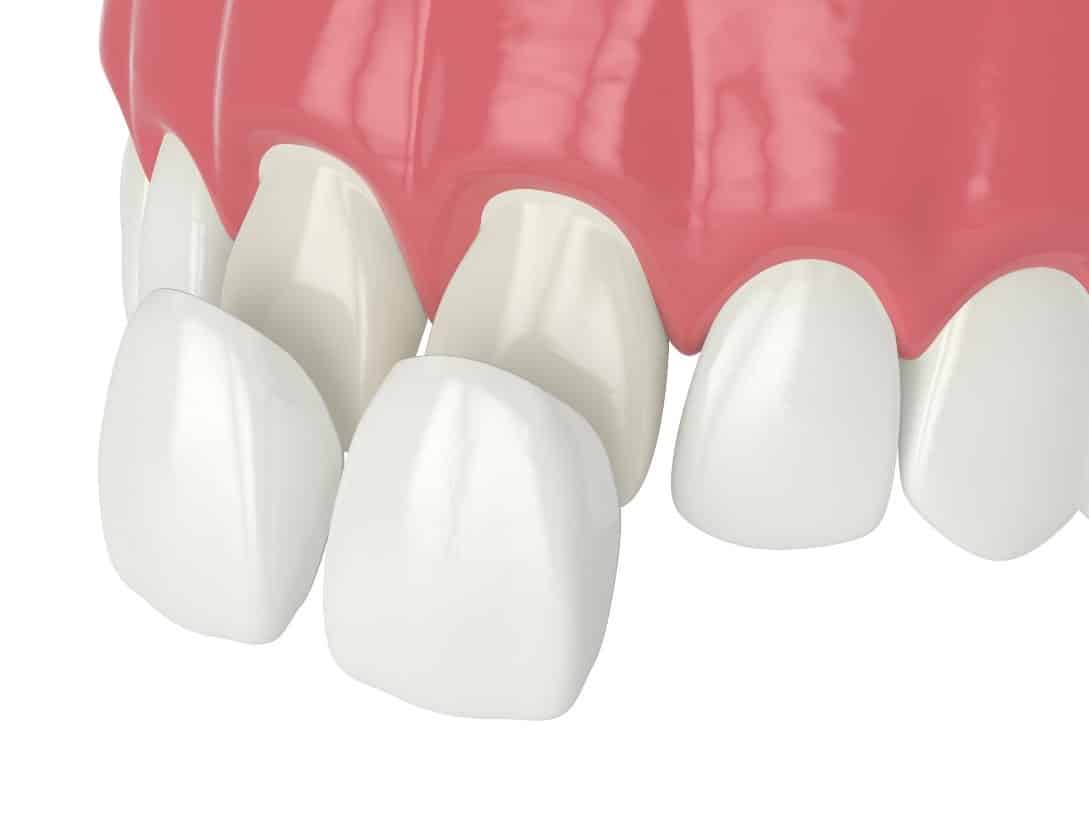A dental veneer is a thin, custom-made layer of material designed to replace the front surface of teeth to improve their color, shape, size and length. These are then permanently cemented to your natural teeth. There are two main types: porcelain and resin composite veneers. The first are stain-resistant and more natural-looking because porcelain mimics natural enamel much better and is less porous than resin. Composite veneers, however, do not require prepping the tooth, so they are a more conservative, non-permanent solution to minor esthetic flaws.
What are veneers used for?
Both kinds of veneers are used to correct tooth discoloration caused by excess fluoride, stains, or old fillings. They can also correct minor or superficial chipping or hairline fractures. They are also a great option to close gaps and correct uneven or irregularly-shaped teeth.
How do porcelain veneers work?
It is important to let your dentist know your expectations with veneers. Your input will be vital in the entire process. This is a procedure completed in two appointments. The first is to do the initial evaluation, where the dentist will decide which is the best course of action to make your expectations achievable. Once the decision is settled, your dentist will start prepping right away. This means that the dentist will reshape the tooth’s front and incisal surfaces by a few millimeters (about the thickness of the layer of porcelain), then take impressions, make models and then resin temporary veneers. The lab will design and create your veneers taking into consideration the dentist’s notes and esthetic guidelines.
On your second appointment, the dentist will try in the veneers, adjusting and trimming as needed. Then the tooth will be cleaned, polished and etched, which will add retention to the permanent cement. Once the veneer is cemented, the dentist will check your bite and make any additional adjustments for the best fit.
How long do veneers last?
A successful veneer can last 7 to 15 years. After this time it is possible to need replacement. Also, they can very seldom be repaired in case they fracture.
So, could I be a candidate for veneers?
Veneers can only be done over healthy front teeth. So, if your front teeth have any kind of decay, fracture or large filling, they are no longer apt for a veneer. Also, candidates must not suffer from bruxism (night clenching) or gum disease. This is because these chewing forces may cause both the porcelain and the resin to fracture and the veneer to fail. Severe bite problems can also affect the success of a veneer. In those cases, a crown might be a better option because it is more versatile and resistant. Also, general cleaning routines are important for anyone who has either crowns or veneers because decay can creep beneath them if not properly cleaned.
At Costa Rica Dental Team we have more than ten years’ experience in esthetic restorations like crowns and veneers. Our team of dental professionals will make you as comfortable as possible during your work and after. Our lab is on site and gives us a faster turnaround time than many other clinics around. Our prosthetic work also has an incredible 10-year warranty. If you’d like to regain your beautiful smile, contact us so we can guide you toward your options.




